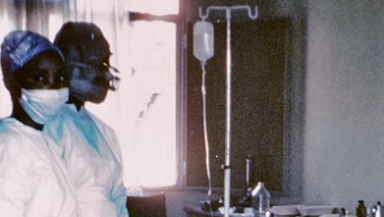
Nigeria's federal government has issued a warning that the Ebola Virus which has already caused deaths in Central and West Africa, could become a problem for the country.
Guinea's Ministry of Health has already reported about 168 cases of the virus and 108 of those resulted in deaths. A further 13 deaths have been recorded in Liberia. The disease has also been reported as present in West African countries such as Ghana and Mali.
Ebola can spread through physical touch, by coming into contact with the bodily fluids of someone who is infected, or by the tissues of infected animals or people.
The World Health Organization said on Tuesday that it expects the disease to continue its spread in West Africa for the next few months, putting some African countries on high alert.
Nigeria is one of those countries, though no cases have been reported as of April 14.
"Ebola has been moving eastward towards Nigeria," said the Minister of Health, Onyebuchi Chukwu in a weekly meeting with the Executive Council of the Federation, FEC. "We are already facing danger from Central African Republic, even with what is happening in Congo; people are also migrating to Chad and Cameroon are also in our borders. So Nigeria is in danger."
Chukwu shared with the press that the government is doing more to educate Nigerians on the virus. In addition to passing out leaflets, the Minister of Health mentioned, "we have already approved for jingles to be produced in various languages; produced for Nigerian Centre for Disease Control to be aired on Radio, TV and newspaper adverts."
The Minister of Health also pointed out that Ebola can be spread through animals and specifically warned Nigerians that bats, which some Nigerians eat, can carry the disease. He reminded Nigerians that the best preventative measure is to continue being mindful of personal hygiene.
"All the things we said still apply. Personal hygiene: make sure that after every ceremony you wash your hands," he pointed out. "The first thing I do after returning from work is to wash my hands before hugging my children or anybody; it is very important. The second thing is that before you eat wash your hands again, the fruits must be washed, those things we eat from must be washed."
There is no vaccine or specific treatment available to combat Ebola, Chukru acknowledged. He emphasized that the government will do their best to educate Nigeria.













